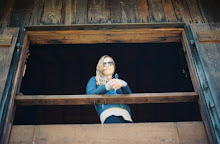He had been sent biographical notes and pictures of his fellow guests on the frozen fjord and been struck by the smile of a certain conceptual artist whose name, Stella Polkinghorne, was familiar, even to him. Her most recent media storm involved an accusation of an infringement of copyright that had never come to court. She had constructed for the Tate Modern a scaled-up Monopoly set on a playing field in Catford, each side of the painted board a hundred meters long, a space one could stroll about in, with near-life-sized houses on Park Lane and the Old Kent Road, accommodation one could enter to observe an unequal distribution of wealth. In the empty homes of the Mayfair rich, tapestries, woodcuts by Dürer, and discarded champagne bottles, while down the Old Kent Road, among the East End poor, junk-food wrappers, discarded syringes, a TV playing soaps. The dice were two meters high, the Community Chest cards were lowered in place by crane, the dog-eared banknotes made of plywood were in tottering twenty-five-meter piles on grass. In all, an indictment, it was supposed, of a money-obsessed culture. Do Not Pass Go was celebrated, reviled, photographed from the air by passengers on their descent into Heathrow. Children liked stampeding across the board in herds and crawling inside the top-hat token. The makers of the game began a legal case, which they dropped in the face of public derision and rising sales. A local business association on the Old Kent Road also brought a case, or said it would, and nothing was heard.
[Ian McEwan, Solar, 2010]





No comments:
Post a Comment